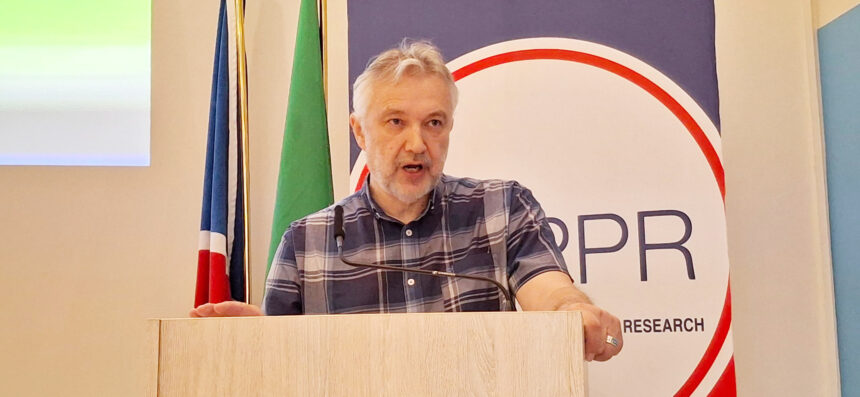Rudolf Gaiseb
The Institute for Public Policy Research executive director Graham Hopwood said deep fakes and voice cloning generated with artificial intelligence as well as topics like immigration, race, gender and nationalism are exacerbated by disinformation.
This creates ‘us vs them’ divisive narratives.
He asserted that disinformation is worsening and being laundered through legitimate sources, including influencers, local media or think tanks, to make it more credible. “Our increasing tendency is to rush to judgement and leap to often the wrong conclusions. In this world, fact-checking has become increasingly important, if not absolutely crucial.
“A fact-checking culture promotes critical thinking and encourages voters to question sources, examine the context and verify information. These skills extend beyond elections into daily civic life,” Hopwood noted.
Speaking during the launch of the findings of the Countering #Elections2024 Mis- and Disinformation study this week, the IPPR expressed that from the study, a lot of false and inaccurate information was observed during last year’s National Assembly and Presidential elections.
This included political parties running disrupting smear campaigns against each other. Meanwhile, even after the 2024 elections, disinformation in Namibia was on the rise. There is an overwhelming circulation of fake Cabinet lists, fake regional governor appointments and social media smear campaigns attempting to influence Cabinet appointments.
This was often done using logos and formats of credible media outlets.
Hopwood highlighted the need to see fact-checking as a shared civic value that is essential for democracy and problem-solving. “We can talk about possible responses to this today – the education system is key, media literacy is key, and encouraging critical thinking is key,” he underscored.
Editor of the IPPR’s Namibia Fact Check project Frederico Links advised that election mis- and disinformation can be dealt with through resolutions by adopting resolutions 160 and 161 by the African Commission on Human and Peoples’ Rights (ACHPR).
First is the development of guidelines to assist states in monitoring technology companies with respect to their duty to maintain information integrity through independent fact-checking.
The latter is the resolution on working towards the assessment of public interest content in this digital era, and developing guidelines to ensure a public interest element for all platforms operating in Africa.
The resolutions, which come in the wake of all elections on the continent, recognise what happened across the continent in the electoral context concerning mis- and disinformation. Links recommended that the country prioritises digital media information literacy from the lowest grades to tertiary level.
“There needs to be a widespread digital media information literacy rollout that teaches people how to identify what is credible content and what is false content. What are lies, propaganda and mis- and disinformation?” he asked.
Links added that fact-checking will not effectively and impactfully deal with mis- and disinformation, but that people need to see it for themselves and identify it, assess it, and make their own decisions around the information they are encountering.



